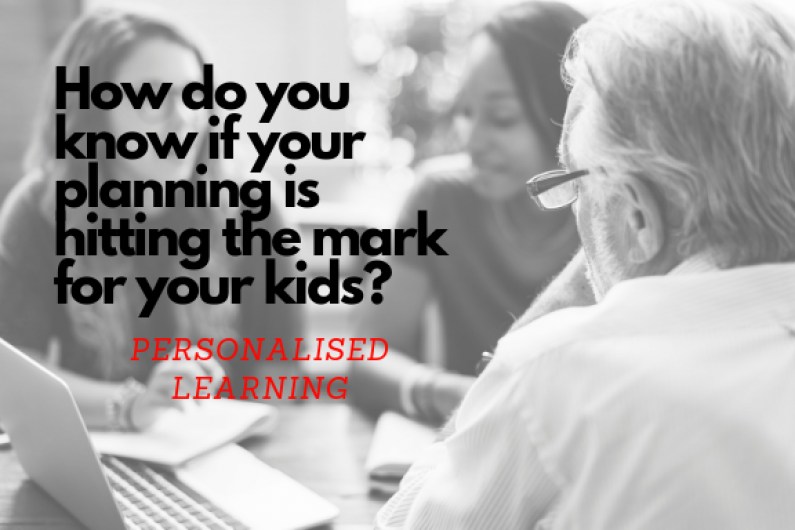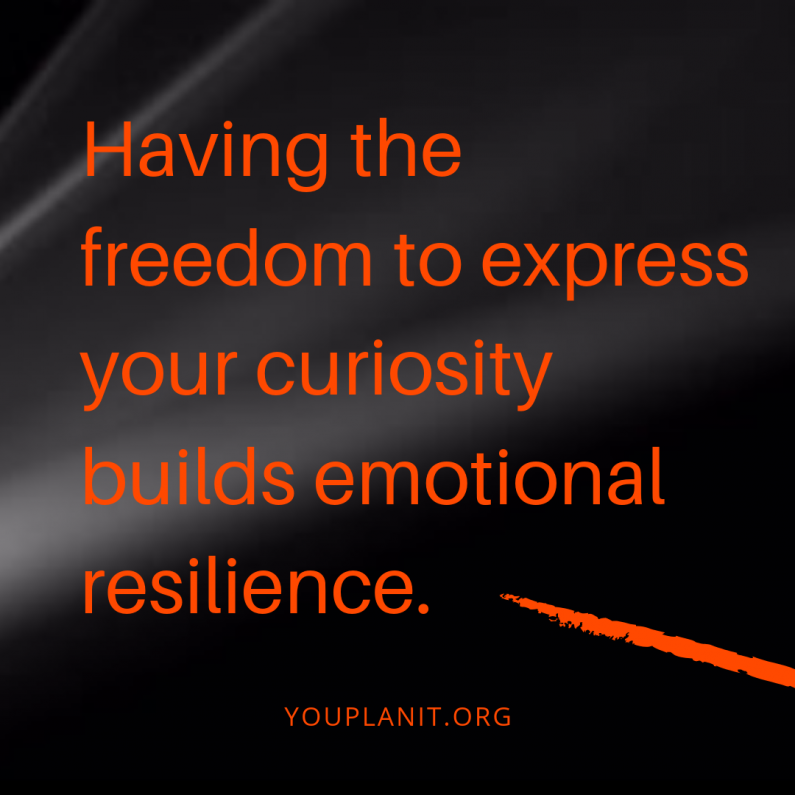
How do you know if your planning makes sense for your kids?
Well, I don’t think you can!
This is partly because no one has ever defined what personalised learning looks like in real terms or come up with a collective agreement of how to plan, track, mark or report on it.
Typically, an effective teacher who undertakes the personalised learning path needs to be able to identify all student’s strengths and needs and provide the best learning opportunities for them. It seems rather unrealistic to manage this when you have a class of up to 30 students. How can a teacher possibly plan for each students’ needs, strengths, and interests when planning a typically prescribed lesson is enough?
Following are possible ways of describing a personalised learning journey.
These are but a few ideas that I can personally think of, the interpretations are as diverse as religions of the world! Yet the goals are often the same. We all want to know how to best motivate, engage and build the necessary life skills required to become life-long learners.
At the end of the day, the teacher is left with the bewildering task of trying to meet the personal needs, strengths, and interests of their students whilst maintaining the requirements of the national curriculum goals. We make this easy with our software platform. Learn More Here.
Our teachers are becoming worn out trying to marry these two. It’s getting out of hand; we must simplify the process.
Simplifying the curriculum which identifies the skills and knowledge required to become strong independent thinkers and communicators is a good place to start and is an endeavor well worth exploring.
The New Zealand Key Competencies are a great way to express the underlying values needed to become confident life-long learners and can provide the basis for assessment rather than relying on the typical, exclusive assessment of individual curriculum subjects such as reading, writing, math, science, social science, etc. I am not advocating we do away with the typical assessment of subjects and academic disciplines found within each of these curriculum areas, but I am suggesting a new approach which allows a more natural development of these skills possible through a student-led and 'Student Voice' learning environment. When the correct motivators for learning are harnessed many of the learning outcomes we strive for within specific subject areas will take care of themselves. Just like a baby learns to walk and talk so will our students learn to use the toolbox of academic disciplines to express their learning.
In terms of assessment, our aim is to build a world-class assessment system that will ensure all students understand their strengths and weaknesses and are recognised for the work they do. Click here to view suggestions for assessment possibilities for a personalised or 'Student Voice' learning environment.
Ideally, the curriculum subjects should be taught in ‘concept-form’ rather than finite knowledge or skill sets. This will provide the flexibility required to meet the needs, strengths, and interests of students and give them the breadth of context they need to remain engaged, inspired, authenticated, and empowered learners. Click Here to learn how we manage this.
We, as teachers, do far too much and take on responsibilities that don’t belong to us. With today's’ technologies it should be easier, not harder!
To learn more about possible ways of simplifying the personalised learning journey Click here.
It would be great to get your feedback. Link
Thanks
Tala

16 Mar
YouPlanlt harnesses the natural ability of human learning and provides a place for its expression.

28 May
Is there something which is keeping our kids from asking questions that matter?
Why are my students driving me crazy? I’m up against power struggles every day and find myself exhausted just thinking about the next meeting talking about that kid who refuses to listen!